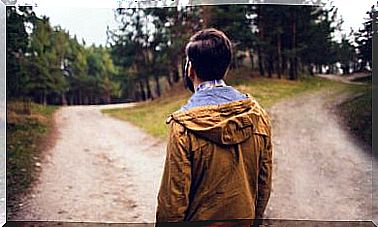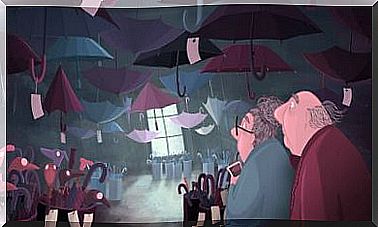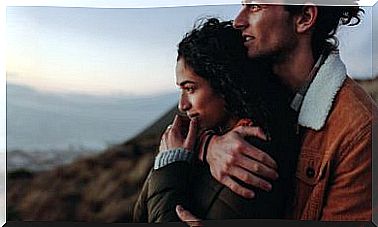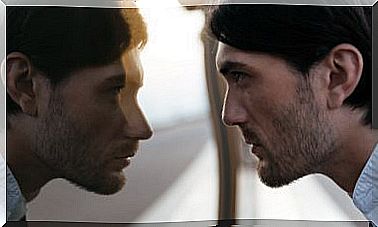5 Wonderful Buddhist Short Stories That Will Make You Wiser
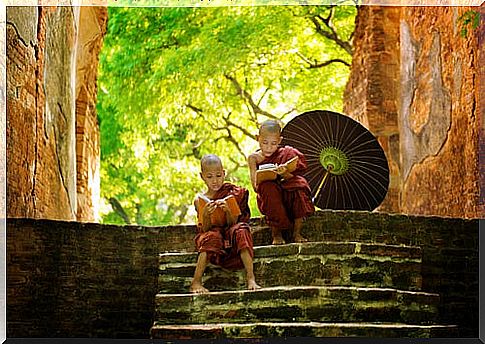
Buddhism comes from the word “buddhi”, which means awakening. For that reason, Buddhist philosophy is considered the philosophy of the “awakening process. ” A process by which we not only open our eyes, but also the rest of our senses and our intellect, in a full way through different ways such as Buddhist micro-stories.
With these five Buddhist micro-stories, we encourage you to leave apathy behind, develop greater understanding, and become a wiser person. We hope you enjoy them and squeeze out the wisdom they carry.
The cup of tea
“The teacher came to the Zen master’s house and showed up, flaunting all the degrees he had achieved in his long years of study. Later, the professor commented on the reason for his visit, which was none other than knowing the secrets of Zen wisdom.

Instead of giving him explanations, the teacher invited him to sit down and served him a cup of tea. When the cup overflowed, the seemingly distracted sage continued to pour the infusion so that the liquid spilled across the table.
The professor could not help but draw his attention: “the cup is full, there is no more tea,” he warned. The teacher put the kettle aside to affirm: “You are like this cup, you arrived full of opinions and prejudices. Unless your cup is empty, you won’t be able to learn anything. “”
The first of these five Buddhist micro-stories teaches us that with a mind full of prejudices it is impossible to learn and take into account new beliefs. It is necessary to “empty” ourselves of old precepts and be open to new teachings.
The gift
“Buddha was transmitting his teachings to a group of disciples when a man approached him and insulted him, with the intention of attacking him. Before the expectation of those present, Buddha reacted with absolute calm, staying still and in silence.
When the man left, one of the disciples – outraged by such behavior – asked Buddha why he had allowed that stranger to mistreat him in this way.
Buddha replied calmly: “If I give you a horse but you do not accept it, whose horse is it?” . The student, after a moment’s hesitation, replied: “If I didn’t accept it, it would still be yours.”
Buddha nodded and explained that although some people decided to spend their time giving us insults, we could choose whether we wanted to accept them or not, as we would do with any other gift. he is left with the insult in his hands “.”

Buddhist monks and beautiful woman
“Two Buddhist monks, one old and one young, were walking outside the monastery, near a stream of water that had flooded the surroundings. A beautiful woman approached the monks and asked for their help to cross the gully.
The young monk was horrified at the idea of carrying her in his arms, but the old man naturally took her and carried her to the other side. Afterward, the monks continued walking.
The young man could not stop thinking about the incident and finally exclaimed: “Master! You know that we have sworn abstinence. We are not allowed to touch a woman like that. ” How could you take the beautiful woman in your arms, let her put her hands around her neck, her breasts close to her chest, and carry her through the gully like that? The old man replied: “My son, you are still wearing it!”
The third of these Buddhist micro-stories helps us understand that sometimes we carry the past, with emotions of guilt or resentment, and we make it heavier than it really was. By accepting that the incident is not part of our present, we can remove a great emotional weight from our shoulders.
Intelligence
“One afternoon people saw an old woman looking for something on the street outside her hut. What is it, what are you looking for? They asked him. I lost my needle – she said. Everyone present began searching for the needle with the old woman.
As time went by, someone commented: The street is long and a needle is very small, why don’t you tell us exactly where it fell? Inside my house – indicated the old woman.
Have you gone crazy? If the needle has fallen inside your house, why are you looking for it out here? – they told them. Because there is light here, but not inside the house, she resolved. “
The Buddhist micro-stories room reminds us that many times, for convenience, we look outside for what resides inside us. Why do we seek happiness outside of ourselves? Have we lost it there?
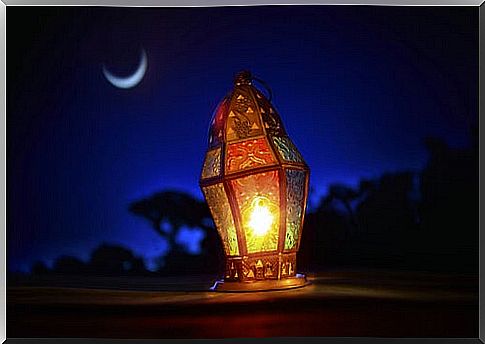
We are not the same
“ No one like Buddha developed benevolence and compassion in his day. Among his cousins, was the evil Devadatta, who was always jealous of the teacher and determined to leave him in a bad place, even willing to assassinate him.
One day when Buddha was leisurely strolling, his cousin Devadatta threw a heavy rock at him from the top of a hill. The rock fell next to the Buddha and Devadatta could not end his life. Buddha, even realizing what happened, remained impassive, without even losing his smile.
Days later, Buddha met his cousin and greeted him warmly. Very surprised, Devadatta asked, “Aren’t you angry?” “No, of course not”, said Buddha.
Without leaving her astonishment, Devadatta inquired, “Why?” And Buddha said: “Because you are no longer the one who threw the rock, nor am I the one who was there when it was thrown. “
Buddhist short stories adapted by Mar Pastor
